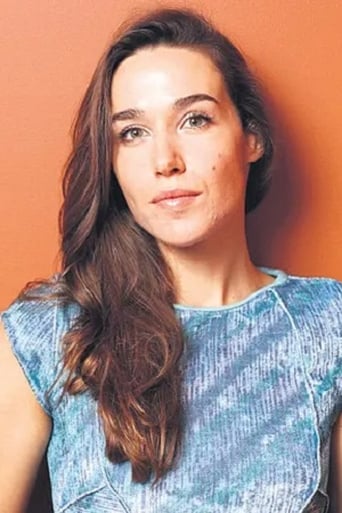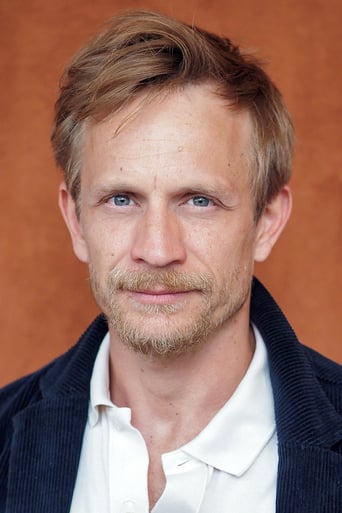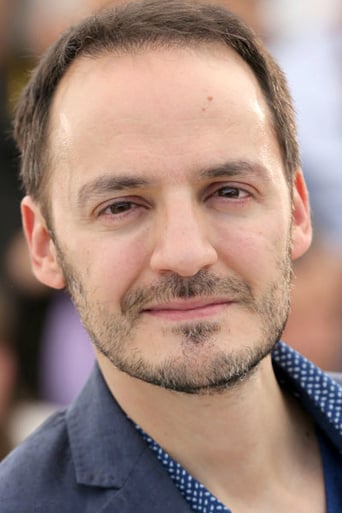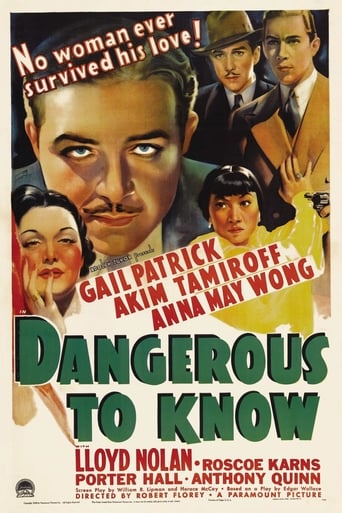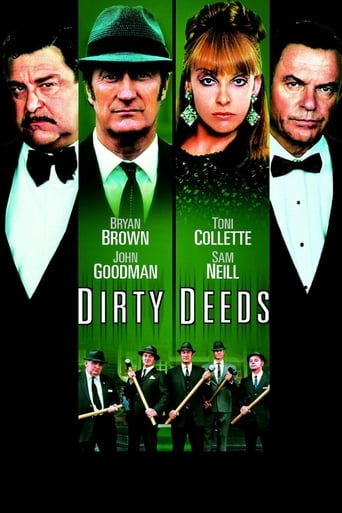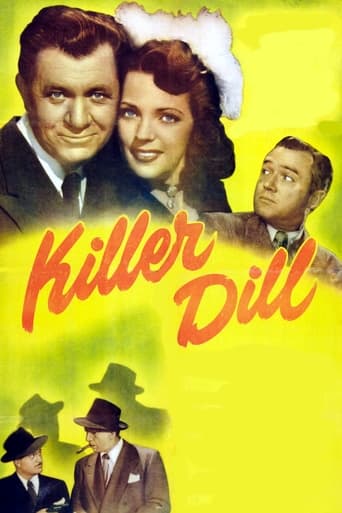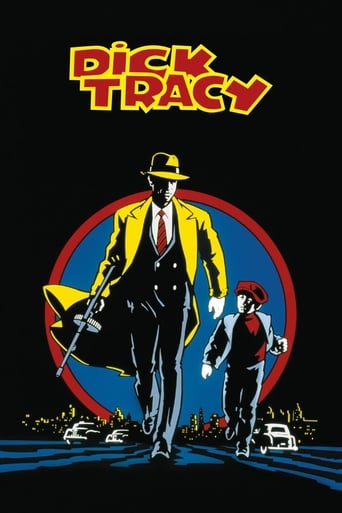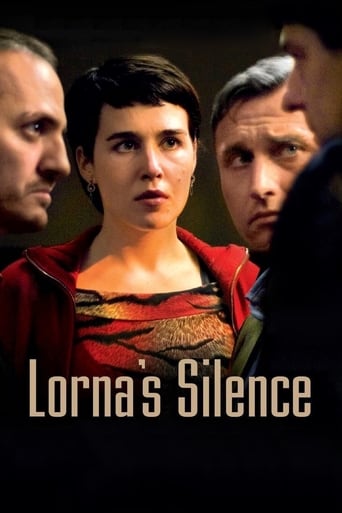
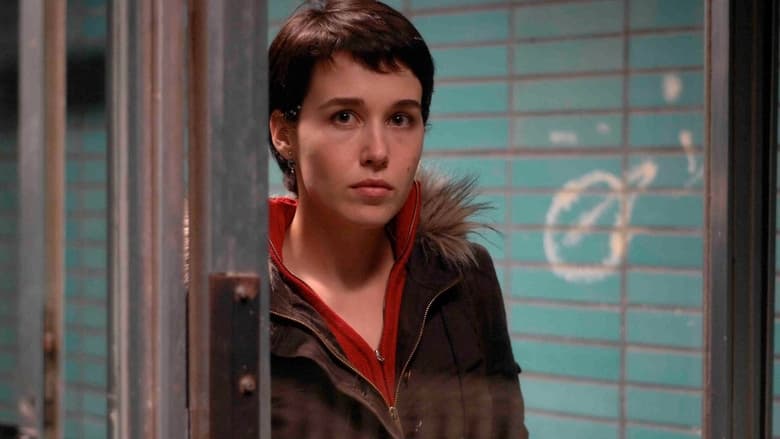
Lorna's Silence (2008)
Lorna is a young Albanian woman in a marriage of convenience with Claudy, a heroin addict. Just as Lorna is about to be granted Belgian citizenship, Claudy finds the strength to detox; this presents a problem not only for Lorna, but for the criminal who brokered the deal.
Watch Trailer
Cast
Similar titles

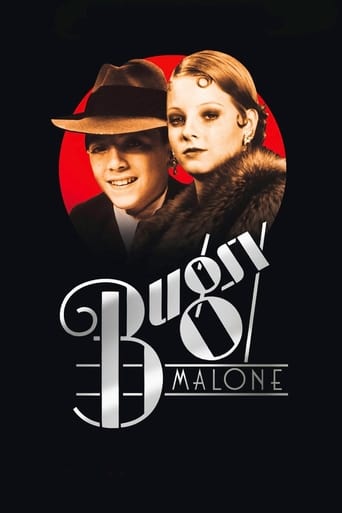
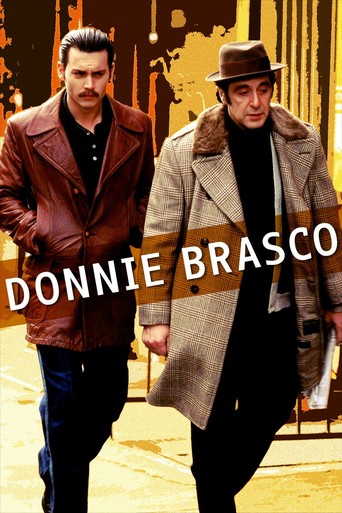
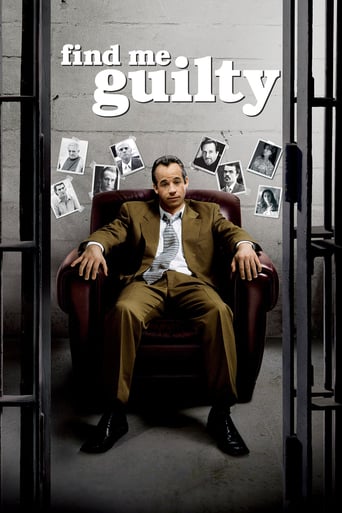
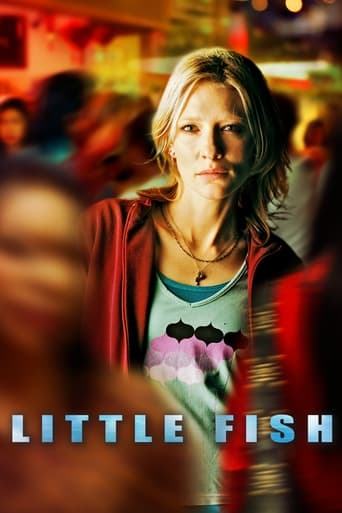
Reviews
Such a frustrating disappointment
I cannot think of one single thing that I would change about this film. The acting is incomparable, the directing deft, and the writing poignantly brilliant.
At first rather annoying in its heavy emphasis on reenactments, this movie ultimately proves fascinating, simply because the complicated, highly dramatic tale it tells still almost defies belief.
A great movie, one of the best of this year. There was a bit of confusion at one point in the plot, but nothing serious.
I wonder if the makers of "Lorna" had that title in mind, considering the moment in another great movie when the lead actor reveals the great pain of her past life. In both cases, the focus is on the slaying of innocence. Some of the criticism of the picture, another wonderful film from the Dardenne Brothers, has pointed to a disappointing ending. I didn't find that to be the case. As we see her guilt develop, the stubborn efforts to dissolve her sham marriage with the junkie, Claudy, rather than see him killed, she recognizes their connection, an addiction, his for drugs, hers for money, both pawns in the criminal plot hatched by others. When she fails to save him, an awkward jump in the picture from him riding away on a bicycle to news of his murder, Lorna's guilt is internalized in a delusion of carrying his child, her way of having him live and salving her guilt. When the deal goes bad because of her, she knows she will be killed also. But she will fight to stay alive, not for herself, but for the life she believes she is carrying. Yes, like their other pictures, this one is something of a religious allegory, but what's wrong with that?
Lorna is well played by the actress. Lorna is a complicated woman who is involved in a game between the Belgian underground and marrying a Russian mobster. The only problem is that she is married to a drug addict who needs to die. She is also in love with a man named Sokol. She dreams of running a snack bar or cafe rather than working at the laundromat. But things slowly go awry when she can't a divorce fast enough. Her current husband wants to quit and go clean. Lorna gets paid for the marriage and the arrangement with the Russian mobster. Along the way, we learn Lorna's ethnic background and her motives. The film's ending needs to be more clear. We will never know the future for Lorna at the end and that's troubling.
When we first see the protagonist of 2008 Belgian film The Silence of Lorna, they are flitting around the general area in which they habit; darting from the shops, back through the streets and then home again to an unwelcoming and droll apartment. Their partner is home, smoking and listening to loud rock music. The partner apologises and tells the lead that they'll stop going out and doing what it is they're doing, an exchange that we feel may have just played out for the umpteenth time. The home quarters are colourless and drab, the walls undecorated and furniture sparse – perhaps they've just moved in, perhaps they're really poor or maybe something more sinister is going on. We wonder what the ragged looking partner does that forces them to be as apologetic as they are, the suggestion that they play a friendly game of cards together might itself suggest a gambling problem; the manner in which the partner is shot, that is to say from behind, gets across a sense of anonymity or alienation about them on first sighting, particularly in regards to how the character feels towards them. Very quickly, the Dardenne brothers Jean-Pierre and Luc have caught us up in the world of these people through their realist style and wonderful techniques; a sensation that does not abate until the very end.The lead is the titular Lorna (Dobroshi), a young woman; an Albanian immigrant living illegally within the Belgian city of Leige and in a false, loveless marriage to the aforementioned partner who's named Claudy (Renier). Lorna's a simple enough girl with relatively attainable aspirations although living amidst a complicated scheme, her tone quiet; her dress sense normalised and in Kosovo born actress Arta Dobroshi, an uncomplicated; unspectacular; unknown acting quantity whom carries a close to all but innocent expression on her face throughout as grins at the situation she's in and bears it. Lorna already has a partner away from Claudy whom is also Albanian, a man named Sokol (Ukaj), and has her eye on a disused structure sitting idly on a plot of land that she one day hopes to turn into a snack bar-come-restaurant with him so as to bring in the cash. Her confidant is a local gangster with broader connections to a Russian criminal organisation; somebody we feel she'd have absolutely nothing to do with ordinarily – a cab driver named Fabio (Rongione) whom is able to access her the necessary items needed to live in Belgium out from under this shroud of seediness and falsity.The film is a wonderful, involving mediation on the morality that comes with most of the actions, reactions and scenarios of what Lorna is facing within the film. Living with a man as unappealing as she does; using somebody else for her own gain and breaking international rules so as to be in a designated place are crimes she has either committed or is on the way to committing before the film has even begun. Complications that arise later on with the organisation of somebody's death stretch the band a tad too much for poor Lorna, and it's then she realises the trouble her actions have put both her, and those around her, in. The Dardenne's balance this agonising central character study and the torn morals that come with it with the back-burning gangsters whom oppose Lorna's anti cut-throat ideas of divorce because they incur police involvement. The result is a beautifully crafted and solid piece of drama that's gripping from its humble beginnings right through to its terrifying finale.By day, Lorna works in a laundromat steaming sheets and pressing clothes and so forth. The job entails pressing out and washing out both the grime and creases from numerous sheets which come in, something that echos what she has going on in her private life as her very soul begins to collect the grime and the creases that come with operating within the world she's operating and dealing with the people she's dealing. The grime threatens to reach a breaking point, so much so that a ploy to organise a case of faux-domestic abuse involving Claudy may just be enough to at least save his life as the Russians plan to simply have him overdose; a death which is clearly a step too far from Lorna's perspective and something far too weighty for her conscience to take.The film is a quietly murky piece, and it's this event which does so well in capturing this overlying canopy. Lorna and Claudy being forced by way of the state of desperation they're in to forge a domestic abuse scenario in which one is the victim and one the aggressor. The agonising planning of this event; the excruciating practising of it that must be completed prior to the execution proper and then the fallout which unfolds as a result of it are individual instances that manifest because of what these desperate characters have got themselves involved in. This being a film about process, about processes and the tortuous carrying out of a number of procedures so as to hopefully spawn a fresher, more hopeful dawn is captured wonderfully by the two sibling directors. There's a coldness to proceedings, a detached sense of everybody within the film not liking one another at all although never daring to actually admit it with the long takes that're applied handled expertly: the emotions of pain; frustration; anger and weakness which begins to manifest within numerous characters gradually rearing themselves on the faces within. The film is a brilliant character study, an unnerving thriller and a quite brilliant piece.
Another powerful Dardenne brothers "social cinema". The view is relentlessly depressing, coherently so. Everything is "grey". Perhaps a ray of light shines when Lorna helps Claudy out of his habit and they ...; the next day she seems spontaneously happy, even her clothing seems to have colour (red). Fabio, as a perfect small time mobster, brings us back to reality. That (Lorna's) mental health is finally a casualty in this world without empathy should come as no surprise to us, wealthy bourgeoisie viewers: we don't face their problems and life without attributes, just "survival" in an urban setting. Notice the poverty of "symbols" at their house. Claudy only has his CDs (which only make him look even more childish) but Lorna's got... nothing. Few sparse clothing and a toothbrush. The ending is soaring indeed.I can add little but to say that there are some loose threads, in my opinion a bit too loose but, as a friend said: "It's French cinema, what do you expect :)?" (The Russian plot being brought to a halt for ... reason, the split in the couple, the sudden idealization of Claudy, to the point of giving his "son" everything. It's obvious she won't get far having done what she did, but I guess we're into her head, which became rather cloudy near the end (so she being left "free" is just that, an illusion).I'd have liked Sokol's character a bit more of screen time. He seems in love, then hurried back to work, then grouchy near the end, without any explanation of his jerky moods. Jérémie is a hell of a good actor. I didn't have much faith in him, but it's not his thinness, his tight jaw or stare into emptiness. He IS despair. Lorna...Arta Dobroshi had a "make or break" role here, and she delivered a thrilling performance. Nuanced, of a person probably without much "mystery" for our standards. But very real, as any low class suburbs in an industrialized country. She seems perfectly cast for the role. Yes, she's very beautiful, but her face not being perfect, her thinness being natural, not fit like Hollywood actresses (and without any aesthetic surgeries) all make for her a probably too nice "dry cleaner's", but nevertheless, believable in her constant strive for money (where to hide it, what to do with it, etc). The way the Moreau family treats her, even regarding $, is perfect. If only they knew... I like that Lorna is far from perfect. She was fed up of Claudy, even considering murder as "just another option". Yes, her sudden outburst of emotion gives some very timely "drama" to the plot :), but I feel it was worth it. The naturalist script is what makes this film flow.Music is great. Beethoven's Sonata 34 op. 111 by Alfred Brendel sounded outlandish, like it were part of another, more abstract world. It is a shocking contrast to the world down below, empty of any feelings. As such, I think it's a brilliant emotional resource.
